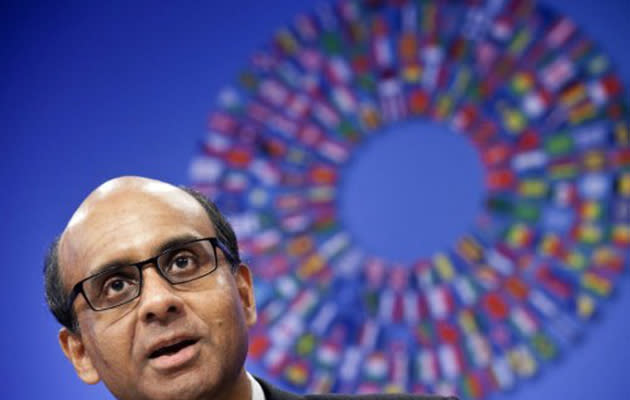GST ensures a fair tax system: Tharman

Deputy Prime Minister and Finance Minister Tharman Shanmugaratnam said on Friday that the purpose of the Goods and Services Tax (GST) was to ensure that "the tax system is fair".
Speaking at a Channel NewsAsia forum on Friday evening with panelists from different segments, the minister explained that "most of the taxes are paid by those who are better off and the benefits are received by those less well off."
Referring to the new permanent GST voucher introduced in this year's Budget, Tharman said it was meant to "help them (lower income families) to bear daily and medical cost, quite apart from topping up their income through workfare and improving the subsidies".
The voucher will fully offset the 7 per cent GST that the lower half of retiree households pay on their expenses. The GST voucher will come in the form of cash, U-Save and Medisave top-ups.
In the last five years, the voucher had been done on a temporary basis "so people can see it with their own eyes and they get to understand the whole nature of the tax system that this is a clear fair tax system — I'm getting something back if I'm poor," said Tharman.
"If I'm rich, you don't get anything back because your job is to pay some taxes for the betterment of society, that's the logic behind it."
Panelists at the forum also shared their concerns on whether our society cared enough for the elderly, among other issues discussed.
"I wanted to make sure that people don't get away thinking the only reason that we want the elderly to be well is so that they can work," said Ren Ci Hospital's chief executive Loh Shu Ching, before adding, "We shouldn't define people by how productive they are."
"When we talk about a sense of purpose for the elderly, it could just be ageing actively, doing other things apart from working, contributing to the society in other ways rather than making money… you can age gracefully and age with dignity even by just taking care of your grandchildren."
"While we need to enhance the SMEs and… look at the CPF contributions so that the elderly can come back to work productively, we need to balance it with what the social sector (can) do in order to enrich the lives of the elderly," agreed Moliah Hashim, Mendaki's chief executive officer.
"So not only for productivity, but provisions for active ageing, happy living, that is my concern within the social sector."
While highlighting that the points on active ageing made by both Loh and Hashim were "very important", Tharman presented an alternative view — if a respected worker enjoys what he is doing, he becomes more productive — a win-win for himself and the government.
"If you respect the worker, the worker will respect the job, that's one point," he said, before adding that "if you want people to feel happy about themselves and to have the right mental balance (and) positive attitude towards life, they got to stay active."
"There's a way in which when people are respected and people enjoy themselves, they end up being more productive. It's in the nature of human behavior," added the minister.
"And I think we'll be surprised by how productive our elderly Singaporeans can be, and even how much they can mult-itask," he said.
Turning his attention to the future, Tharman said he wanted Singaporeans to have a better standard of living and higher incomes. For local enterprises, they should flourish, stay competitive and vibrant.
Beyond that, Tharman added that Singapore should become a compassionate society where "everyone is interested in each other and is interested in each other's welfare."
To get there, Singapore at large needs to do three things, he said.
"We need to place a lot more emphasis on firstly, training all workers. That is the responsibility of the enterprise and the government will pay the full share so much so that for SMEs, under our new schemes, the government pays virtually hundred per cent the cost of the training," the minister said.
"Secondly, we've got to respect the worker and respect every job. Every job is worth doing and if you go to the most developed societies, you will find that most blue-collar jobs are highly esteemed jobs," he added.
"Thirdly, we have to have a sense of responsibility for ourselves. You've got to work hard, not just because you're waiting for your pay but because you want to do the best job possible. I think that's the spirit we got to maintain and, in some respects, got to recover from the past and it will do us well," said Tharman.
-- Additional reporting by Fann Sim
Related Links:
Budget 2012 round-up: Singapore to reduce foreign worker inflow
New foreign labour curbs to make bad situation worse: SMEs on Budget
Budget 2012: CPF contribution rates raised for older S'porean workers
